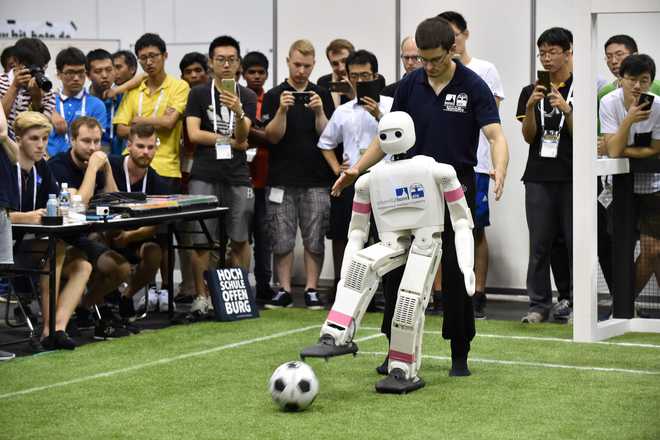
The technique works in conditions of heavy multipath in which classical phase or time of arrival based estimates would fail. AFP file
WASHINGTON: Scientists, including one of Indian origin, have developed an algorithm that can help locate humans and robots in areas where GPS is unavailable.
According to scientists at the US Army Research Laboratory (ARL), they need to be able to localise agents operating in physically complex, unknown and infrastructure-poor environments.
“This capability is critical to help find dismounted Soldiers and for humans and robotic agents to team together effectively,” said Gunjan Verma, a researchers at ARL.
“In most civilian applications, solutions such as GPS work well for this task, and help us, for example, navigate to a destination via our car,” said Verma.
However, such solutions are not suitable for the military environment.
“For example, an adversary may destroy the infrastructure (eg satellites) needed for GPS; alternatively, complex environments (eg inside a building) are hard for the GPS signal to penetrate,” said Fikadu Dagefu from ARL.
“This is because complex and cluttered environments impede the straight-line propagation of wireless signals,” he said.
Dagefu said that obstacles inside the building, especially when their size is much larger than the wavelength of the wireless signal, weaken the power of the signal and re-direct its flow, making a wireless signal very unreliable for communicating information about location.
According to the researchers, typical approaches to localisation, which use a wireless signal’s power or delay, work well in outdoor scenes with minimal obstacles; however, they perform poorly in obstacle-rich scenes.
Scientists developed a novel technique for determining the direction of arrival (DoA) of a radio frequency signal source, which is a fundamental enabler of localisation.
The underlying idea is that the gradient of the spatially sampled received signal strength, or RSS, carries information about the source direction.
“Extracting the DoA requires a theoretically grounded analysis to obtain a robust estimator in the presence of undesirable propagation phenomena,” Verma said.
“For example, large obstacles cause the RSS samples nearby to become highly correlated (so-called “correlated shadowing”). If left uncorrected, this correlation can seriously bias the DoA estimate.” The key invention according to the researchers is an algorithm that statistically models the RSS gradient and controls for spatial outliers and correlations.
When the signal is extremely noisy, the estimator correctly outputs that no DoA is present, rather than incorrectly estimating an arbitrary direction.
The researchers have validated the approach with several publically available as well as in-house collected measurement datasets.
The technique works in conditions of heavy multipath in which classical phase or time of arrival based estimates would fail.
In addition to not requiring any fixed infrastructure, the proposed technique also does not rely on any prior training data, knowledge about the environment, multiple antennas, or prior calibration between nodes. PTI



























